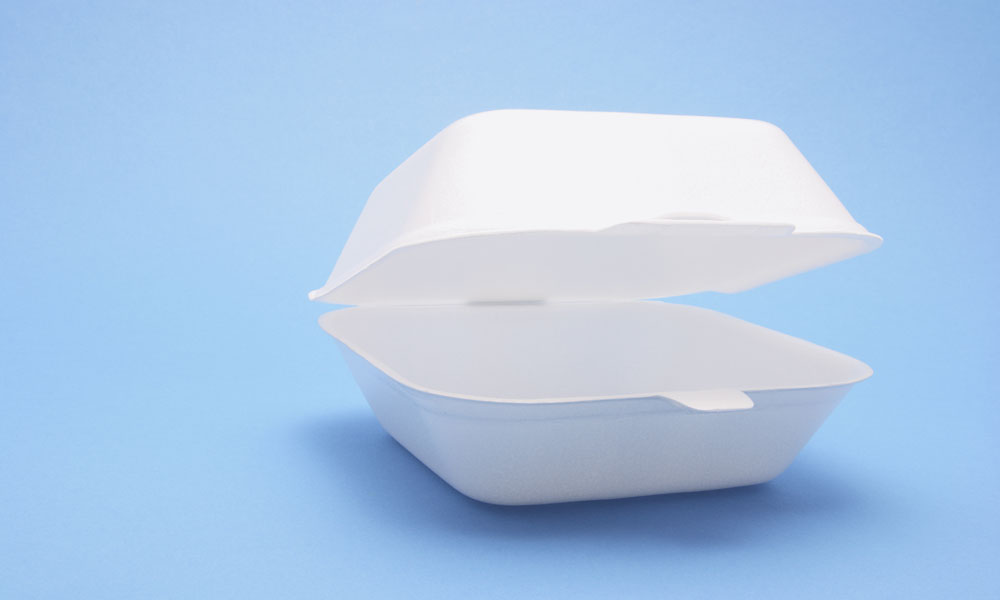
How NYC’s Foam-Container Ban Won Over an Association Ally
Despite the higher cost of using alternatives to polystyrene containers for food packaging, the New York State Restaurant Association backed the city's new ban on the material, thanks in part to some key concessions. But a plastics-industry group says the city missed an opportunity to recycle.
New York City just scored a big victory in its war on trash.
Last week, the city finalized plans to ban the use of most single-usage polystyrene foam containers and loose-fill packing peanuts in the city, starting July 1. A press release announcing the ban contained quotes from a surprising supporter—the New York State Restaurant Association.
That’s despite the fact that NYSRA’s members will have to pay more for alternatives to polystyrene containers, which cost between 50 and 70 cents each. The association told The Wall Street Journal [subscription] that alternatives cost more than twice as much.
But thanks in part to some flexibility from the city, NYSRA got behind the ban. WABC-TV reports that nonprofits and businesses with less than $500,000 in revenue could be exempted as long as they’re able to prove that using nonfoam materials “would create financial hardship.”
“The New York State Restaurant Association appreciates the efforts of the NYC Department of Sanitation and the Mayor’s Office to enact legislation that moves our industry toward sustainability while recognizing the needs of small businesses via a long transition period and a commitment to educate businesses on alternatives before fining them,” the group’s regional director for New York City, Chris Hickey, said in a statement.
In comments to the Journal, Hickey added that supporting the rule reflects that “people care more now about sustainability.”
A Missed Opportunity?
The city approved the ban in 2013 but delayed implementation while research was being done to determine whether items made from polystyrene foam could be recycled. Dart Container Corp., a major manufacturer of foam containers, and the American Chemistry Council (ACC) had lobbied for the study.
The city ultimately found that recycling polystyrene would prove difficult [PDF] due to the high level of food-waste contamination that’s common with such materials.
The ACC said this week that by going with the ban, the city missed out on an opportunity to recycle the materials at Dart’s expense, according to Mike Levy, senior director of ACC’s Plastics Foodservice Packaging Group.
“The decision by New York City illogically ignores [Dart’s] offer to recycle these materials at no cost to the city,” Levy said in a statement. “Worse, it forces the use of other materials that will be sent to landfills, because food-contaminated paper or cardboard and paper take-out containers ‘with heavy wax or plastic coatings’ are not accepted for recycling in the city. These alternative foodservice packaging materials should be held to the same standard as foam packaging.”
Dart notes that foam recycling programs are common, citing one in Los Angeles.
(iStock/Thinkstock)






Comments